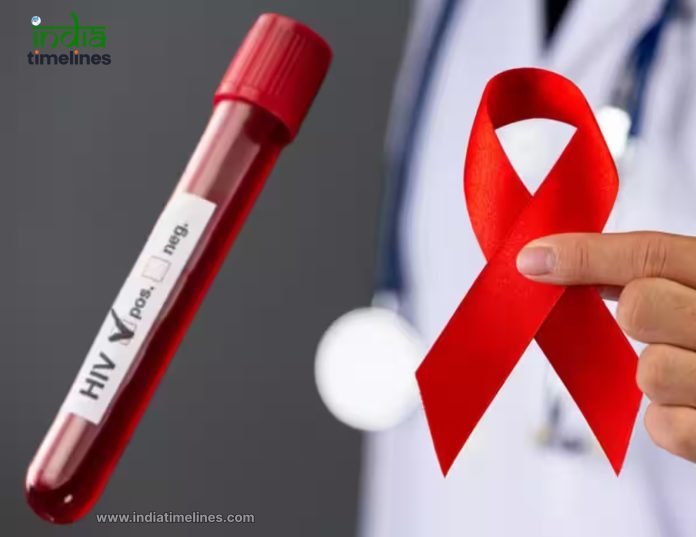
The northeastern state of Tripura, India, is currently grappling with a devastating public health crisis. The recent news that 47 students have died from HIV infection and 828 have tested positive has sent shockwaves through the community. This situation demands urgent attention and intervention to prevent further loss of life and to manage the epidemic effectively.
Visit Us For More Information: Indiatimelines
Understanding HIV and Its Impact
Human Immunodeficiency Virus (HIV) is a life-threatening virus that attacks the body’s immune system, specifically the CD4 cells (T cells), which are crucial for fighting infections. If left untreated, HIV reduces the number of these cells, making the body more susceptible to infections and certain cancers. Over time, HIV can lead to Acquired Immunodeficiency Syndrome (AIDS), a chronic and potentially fatal condition.
The Outbreak Among Students
The outbreak of HIV among students in Tripura is particularly concerning. The young age group affected by this virus highlights the need for increased awareness and preventive measures within educational institutions. Early detection and treatment are critical in managing HIV and preventing its progression to AIDS. Unfortunately, the lack of awareness and timely medical intervention has resulted in a high mortality rate among the infected students.
Contributing Factors to the HIV Spread
Several factors have contributed to the spread of HIV in Tripura:
- Lack of Awareness: There is a significant lack of knowledge about HIV transmission, prevention, and treatment among the general population.
- Stigma and Discrimination: The stigma associated with HIV/AIDS discourages individuals from getting tested and seeking treatment.
- Inadequate Healthcare Facilities: Limited access to healthcare services, especially in rural areas, hampers early detection and treatment.
- Unsafe Practices: Unprotected sexual activities, sharing of needles, and lack of proper sterilization techniques in medical settings contribute to the spread of the virus.
Government and Community Response
In response to this crisis, both the government and local communities have initiated several measures:
- Awareness Campaigns: Efforts are being made to educate the public about HIV transmission, prevention, and the importance of early testing.
- Healthcare Services: The government is working to improve healthcare infrastructure and ensure the availability of antiretroviral therapy (ART) for those infected.
- Support Systems: Establishing support groups and counseling services to help affected individuals cope with the emotional and psychological impact of the disease.
Preventive Measures and Education
Prevention is key to controlling the spread of HIV. Several strategies are being implemented to reduce new infections:
- Sex Education: Comprehensive sex education programs in schools to teach students about safe sexual practices.
- Free Testing and Counseling: Providing free HIV testing and counseling services to encourage early detection.
- Needle Exchange Programs: Implementing needle exchange programs to reduce the transmission of HIV among drug users.
- Awareness Campaigns: Conducting widespread awareness campaigns to dispel myths and reduce stigma associated with HIV/AIDS.
The Role of Antiretroviral Therapy
Antiretroviral therapy (ART) is a cornerstone in the treatment of HIV. ART helps reduce the viral load in the body, thereby slowing the progression of the disease and improving the quality of life for those infected. In Tripura, ensuring the availability and accessibility of ART is crucial. The government is making efforts to:
- Expand ART Centers: Increasing the number of ART centers across the state to provide treatment to more people.
- Training Healthcare Providers: Training healthcare workers on the latest ART protocols and patient management techniques.
- Regular Monitoring: Implementing regular monitoring and follow-up systems to track the health of individuals on ART.
Community Involvement and Support
Community involvement is vital in combating the HIV epidemic. Encouraging community-based organizations (CBOs) to participate in awareness and prevention programs can make a significant difference. These organizations can:
- Provide Education and Resources: Educate the community about HIV prevention and provide resources for safe practices.
- Support Affected Individuals: Offer emotional and psychological support to those living with HIV and their families.
- Advocate for Rights: Advocate for the rights of HIV-positive individuals and work to eliminate discrimination and stigma.
Research and Innovation
Investing in research and innovation is essential to finding new ways to combat HIV. This includes:
- Developing Vaccines: Supporting research initiatives aimed at developing an effective HIV vaccine.
- Improving Treatments: Exploring new treatment options and improving existing therapies to enhance patient outcomes.
- Behavioral Studies: Conducting studies to understand the behavioral patterns contributing to HIV transmission and designing targeted interventions.
Conclusion
The HIV outbreak in Tripura is a stark reminder of the need for continuous vigilance and proactive measures to combat the virus. Collaboration between government, healthcare providers, and communities is essential to control the spread of HIV and support those affected. Through comprehensive education, improved healthcare services, and community support, we can work towards a future free of HIV/AIDS.


































